Merck for Mothers: Expanding access to quality maternal care
More than a decade of strategic partnerships, private sector innovation and data-driven impact are helping create a world where no woman has to die while giving life
May 7, 2024

According to the latest data from the World Health Organization, a maternal death occurs almost every two minutes. Nearly 95% of all maternal deaths occur in low- and lower-middle income countries, and most could have been prevented.
If we don’t do more, mothers, daughters and granddaughters will continue to lose their lives. And their loss will impact many.

The birth of Merck for Mothers
In response to this crisis, our company created Merck for Mothers, a $650 million global initiative to help create a world where no woman has to die while giving life.
“By helping address one of the oldest and most preventable global health tragedies, we believe Merck for Mothers will have an important impact on society,” said Ken Frazier, Merck’s then-chairman and CEO, as he introduced this program at the United Nations General Assembly (UNGA) in 2011.
Merck for Mothers began its mission by joining the UN and collaborators around the globe to apply its scientific and business expertise to help save women’s lives, aligned with Sustainable Development Goal 3.1 to reduce the global maternal mortality ratio to less than 70 per 100,000 births by 2030. Achieving this goal would save the lives of approximately 1.4 million women between 2016 and 2030.
A sustainable model to make a difference for generations
Focused on advancing high-quality maternity care, harnessing innovations for maternal health and catalyzing solutions that respond to local needs, Merck for Mothers aims to make a difference for women and their communities now and in the future.

Women around the world die during pregnancy and childbirth for a variety of reasons, including a lack of medical supplies or inadequate health care services to address complications. Other times, it’s due to delays in seeking care or difficulties getting to a medical facility. Sometimes, women can’t afford to pay for health services. And often, women do not have information about or access to contraceptives to help them make their own decisions about whether or not to become pregnant.
Merck for Mothers takes a holistic approach to addressing the many factors that impact maternal health. It collaborates across sectors — working with governments, nongovernmental organizations, patient groups, professional associations, entrepreneurs, UN agencies, research institutions, businesses and even other pharmaceutical companies. The initiative also supports innovations across digital, finance, products and policy, and strives to leverage the private sector for public good. Engaging local stakeholders in designing, implementing and evaluating solutions plays an important role in creating sustainable improvements.
"We believe investing in maternal health care is a pathway to better health for all."
Jacquelyn Caglia
Director of learning, communications and U.S. programs, Merck for Mothers“Working closely with our collaborators, we’re taking a holisitic approach to address inequities that impact maternal health, reflecting our company’s commitment to expanding access to health around the world,” said Jacquelyn Caglia, director of learning, communications and U.S. programs, Merck for Mothers. “The impact we’ve made reflects our team’s dedication and the incredible efforts of community-based organizations globally. There’s still much to be done, which is why we’re focused on building on our learnings and scaling our impact.”
Making an impact and the ripple effect
Merck for Mothers has worked alongside more than 165 grantees and collaborators in more than 70 countries to find, test, scale and sustain solutions to reduce maternal mortality.
“Our programs directly reach women and health systems. Since 2011, we’ve reached more than 30 million women globally, helping them have healthier pregnancies and safer childbirths through programs promoting high-quality and respectful care — surpassing our goal of reaching 25 million women by 2025,” said Mark Allen, director of global programs & strategic partnerships, Merck for Mothers.
people reached through improved access to quality facilities
women with access to programs supporting safe, high quality, respectful care
providers with improved training
And, research shows that investing in maternal health can have a ripple effect. Better maternal health care is a pathway to a lifetime of benefits, both for a woman’s own health and prosperity as well as that of her children, family, community and nation.

Infants are 15 times more likely to survive

Children are 10 times more likely to finish school

Millions of dollars are contributed by women to the economy
“When we invest in maternal health, we ensure that hundreds of thousands of women survive pregnancy and childbirth. When that happens, newborns are more likely to survive, children are more likely to stay in school, women are able to make invaluable contributions to their communities and the workforce, health systems are stronger and nations’ economies grow,” said Allen. “We call this the ‘Mom Effect.'”
And, that’s an important impact on society for generations to come.
Explore our progress over the past 10+ years
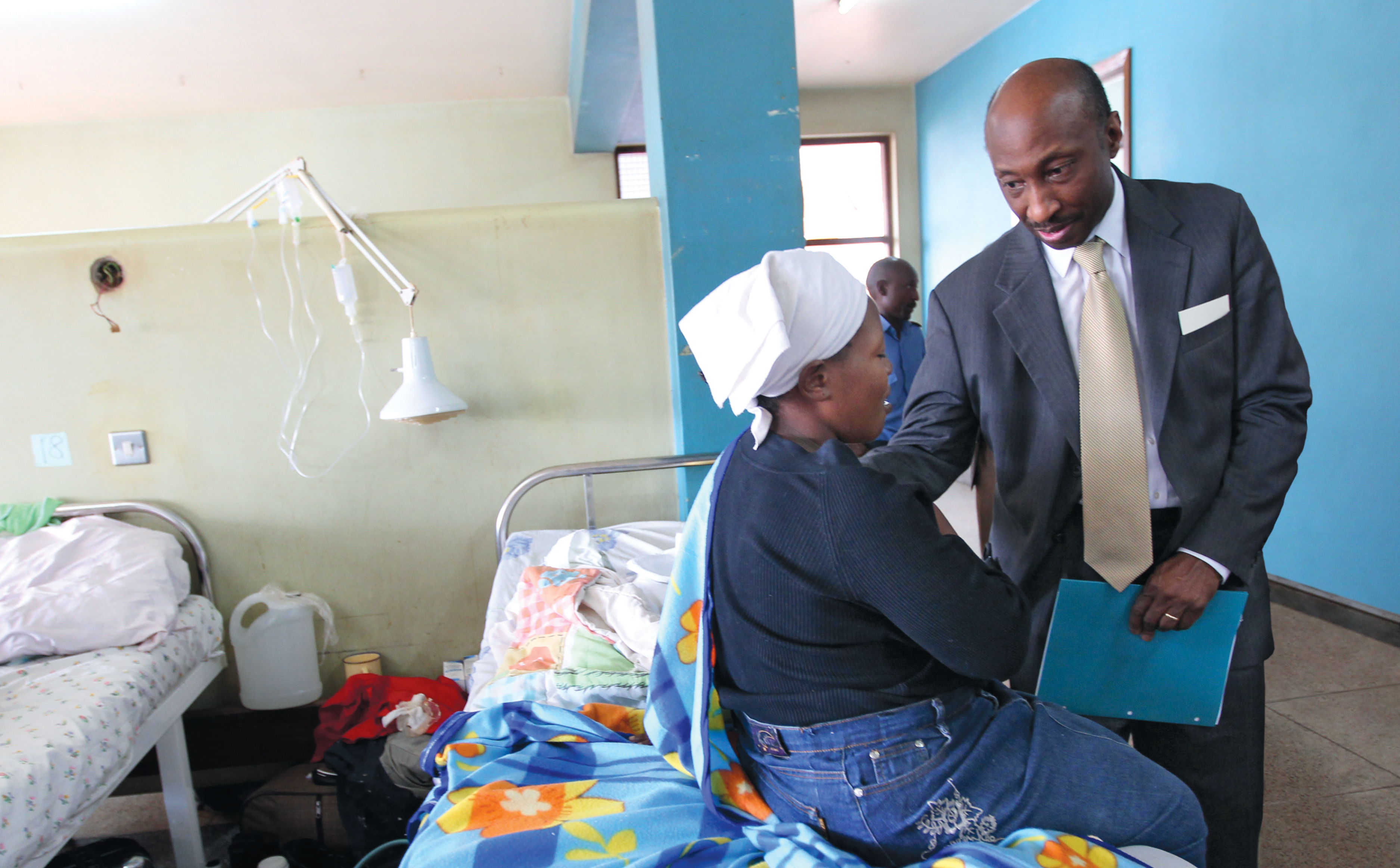
2011
Ken Frazier announces launch of Merck for Mothers

Merck for Mothers and PATH collaborate to identify game-changing technologies
Spearheaded by top scientists from Merck for Mothers and the global nonprofit, PATH, this unique alliance evaluated promising technologies that address the two leading causes of maternal mortality — post-partum hemorrhage (PPH) and preeclampsia — as well as family planning. This collaboration surfaced the ideas of focusing on a heat-stable uterotonic (carbetocin) to address excessive bleeding during childbirth and optimizing magnesium sulfate administration for pregnant women with preeclampsia – two initiatives that we continue to fund today.
2012
Merck for Mothers joins new global partnership — Saving Mothers, Giving Life
This public-private partnership focuses on helping mothers during labor, delivery and the first 24 hours following birth, when an estimated two-thirds of maternal deaths and almost half of infant deaths occur. With a pledge of more than $200 million, the partnership began with programs in Uganda and Zambia, where maternal mortality rates are disproportionately high.
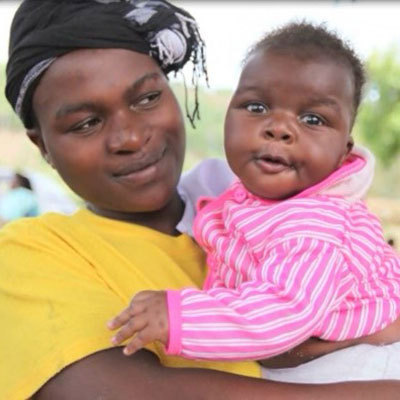
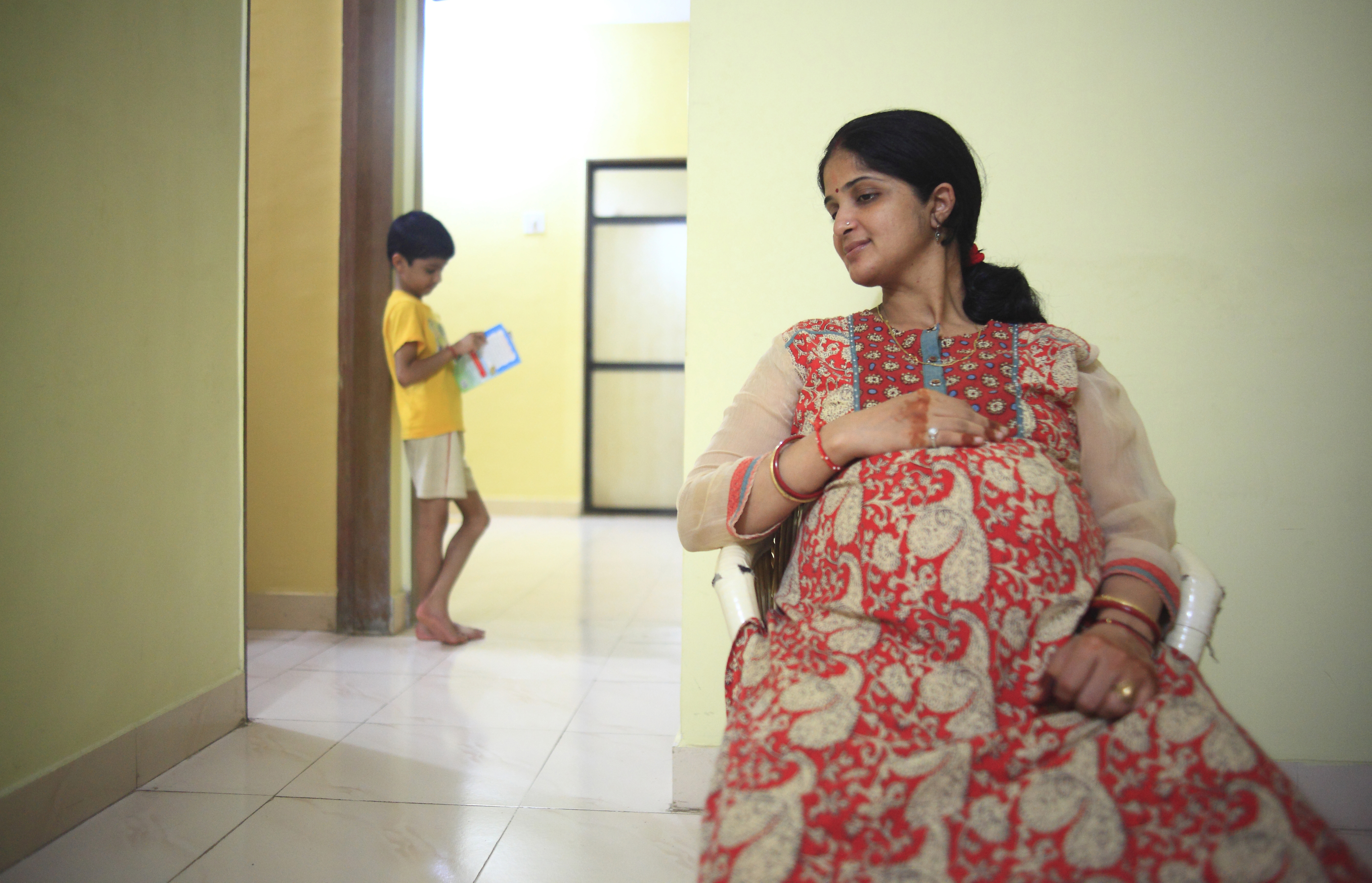
2013
Merck for Mothers launches $10 million initiative in India
This initiative to improve access to maternal health services will reach nearly 500,000 pregnant women in Uttar Pradesh, Rajasthan and Jharkhand — all areas with high rates of maternal deaths.
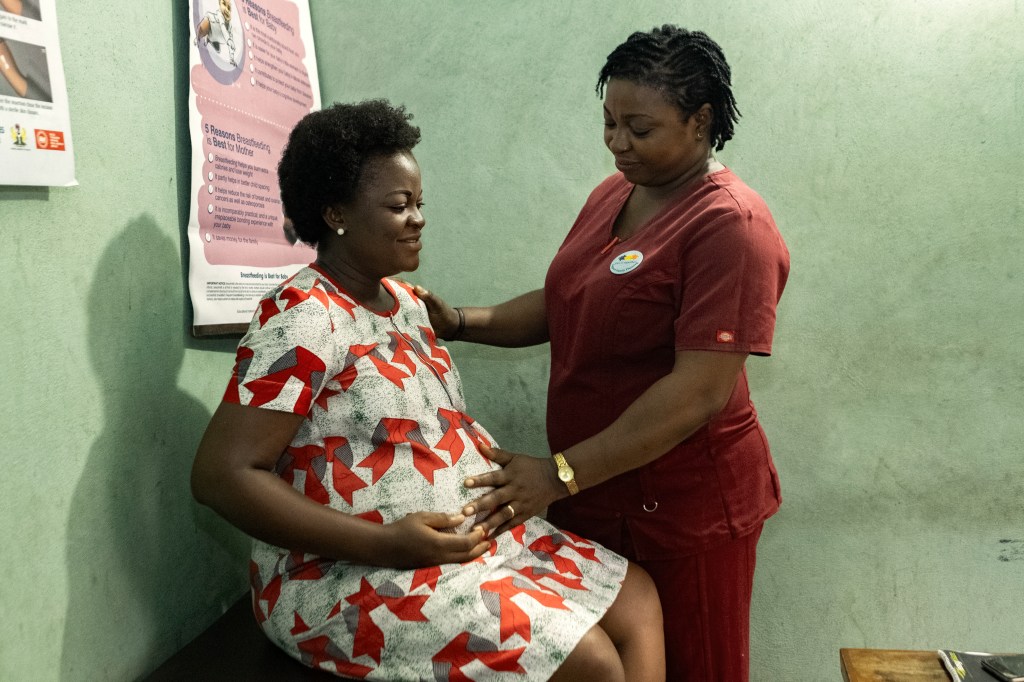
Global health, development and business leaders announce new innovative financing partnership
This partnership leverages private sector funding to speed up delivery and access to life-saving health supplies, such as contraceptives, bed nets, and medicines to those in need. Through Pledge Guarantee for Health (PGH), this new financing mechanism helps increase the impact of each dollar of donor funding and ultimately improve health care access and outcomes for the millions who are helped by foreign aid.
Through the partnership, Merck and other private sector suppliers step up to provide up-front price discounts to aid recipients who utilize PGH to purchase their life-saving health supplies.
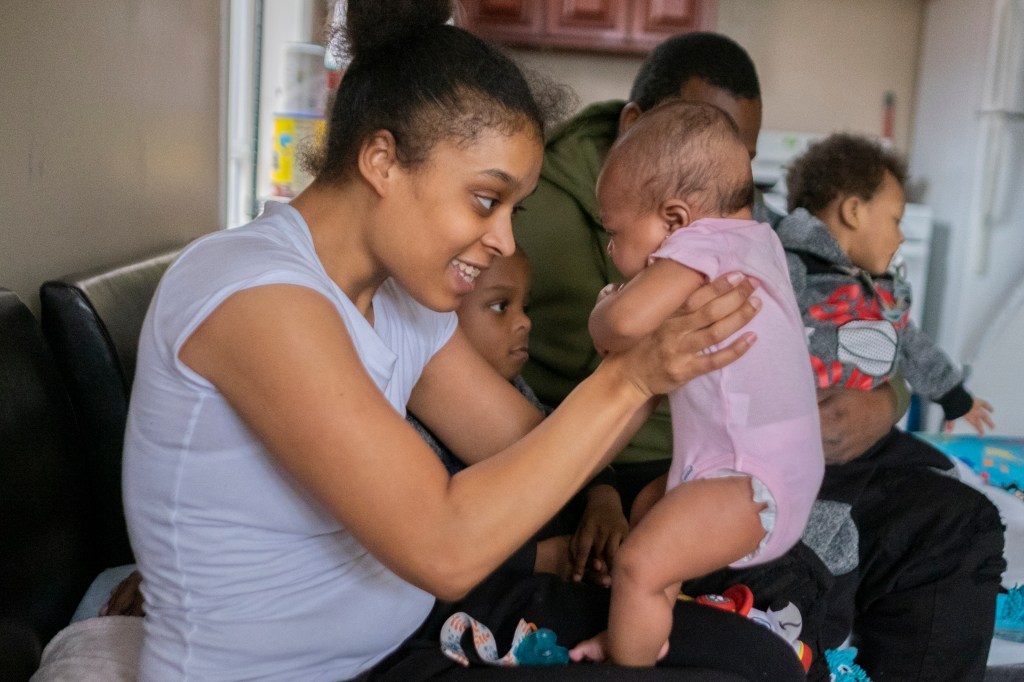
Merck for Mothers launches programs in the U.S.
The maternal mortality rate in the U.S. has nearly doubled since 1990. More than 50,000 women a year — one every 10 minutes — nearly die from severe complications they experience during pregnancy or childbirth. With an initial commitment of $6 million, these programs aim to enhance community care initiatives for high-risk women before, during and after childbirth; implement standard approaches to address obstetric emergencies; and strengthen data collection and reviews to better understand why maternal deaths occur and how to improve practices and patient care.
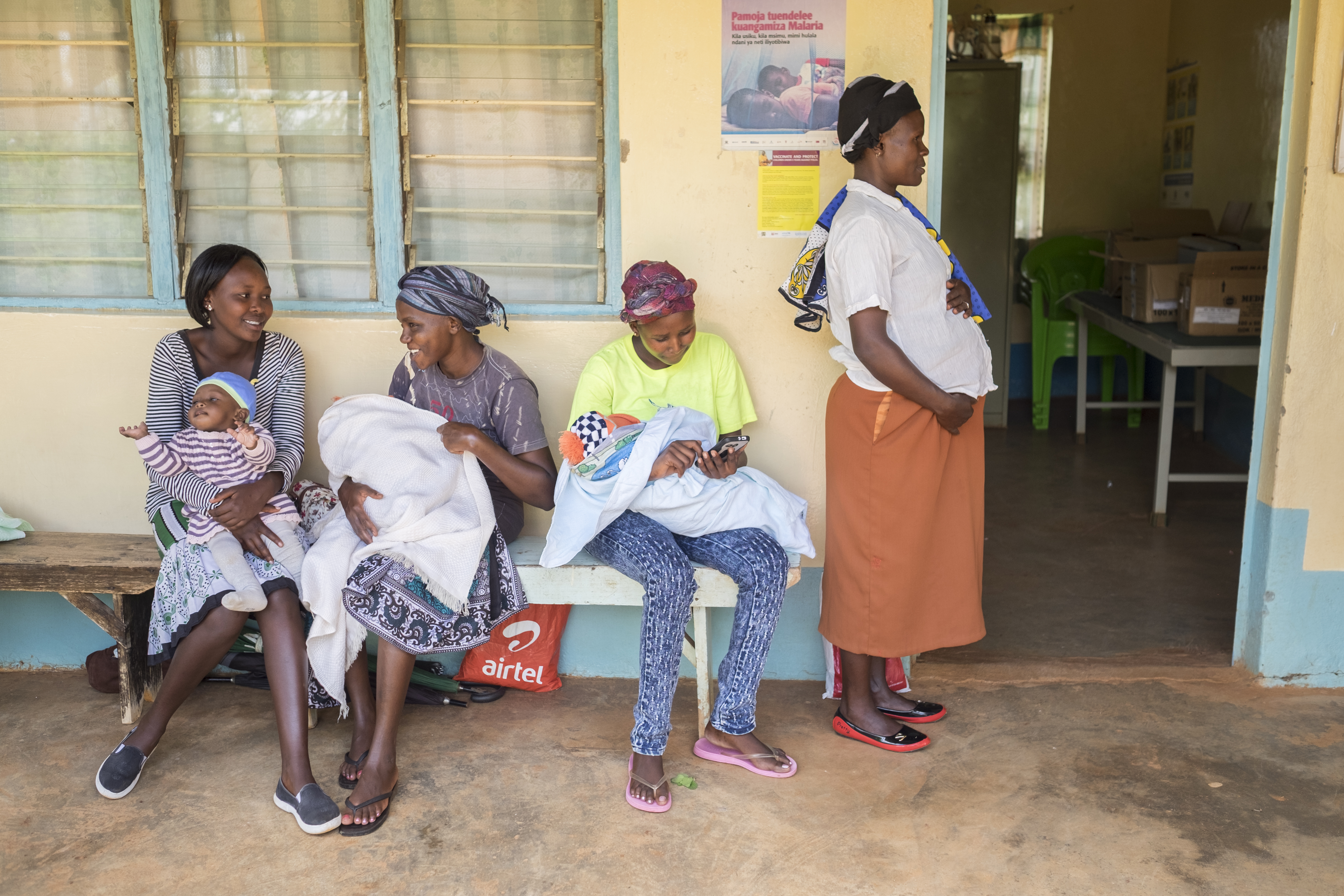
2014
Merck, Ferring Pharmaceuticals and WHO announce collaboration to prevent excessive bleeding in women after childbirth
Merck, Ferring Pharmaceuticals and WHO collaborate to advance a new, proprietary formulation of carbetocin to prevent excessive bleeding in women after childbirth. A primary benefit of carbetocin is its ability to remain stable at room temperature, even in hot and tropical climates, unlike oxytocin, the standard medicine administered for the prevention of PPH. Oxytocin is temperature-sensitive and requires sustained cold distribution and storage, which is difficult to achieve in many of these areas of high maternal mortality.
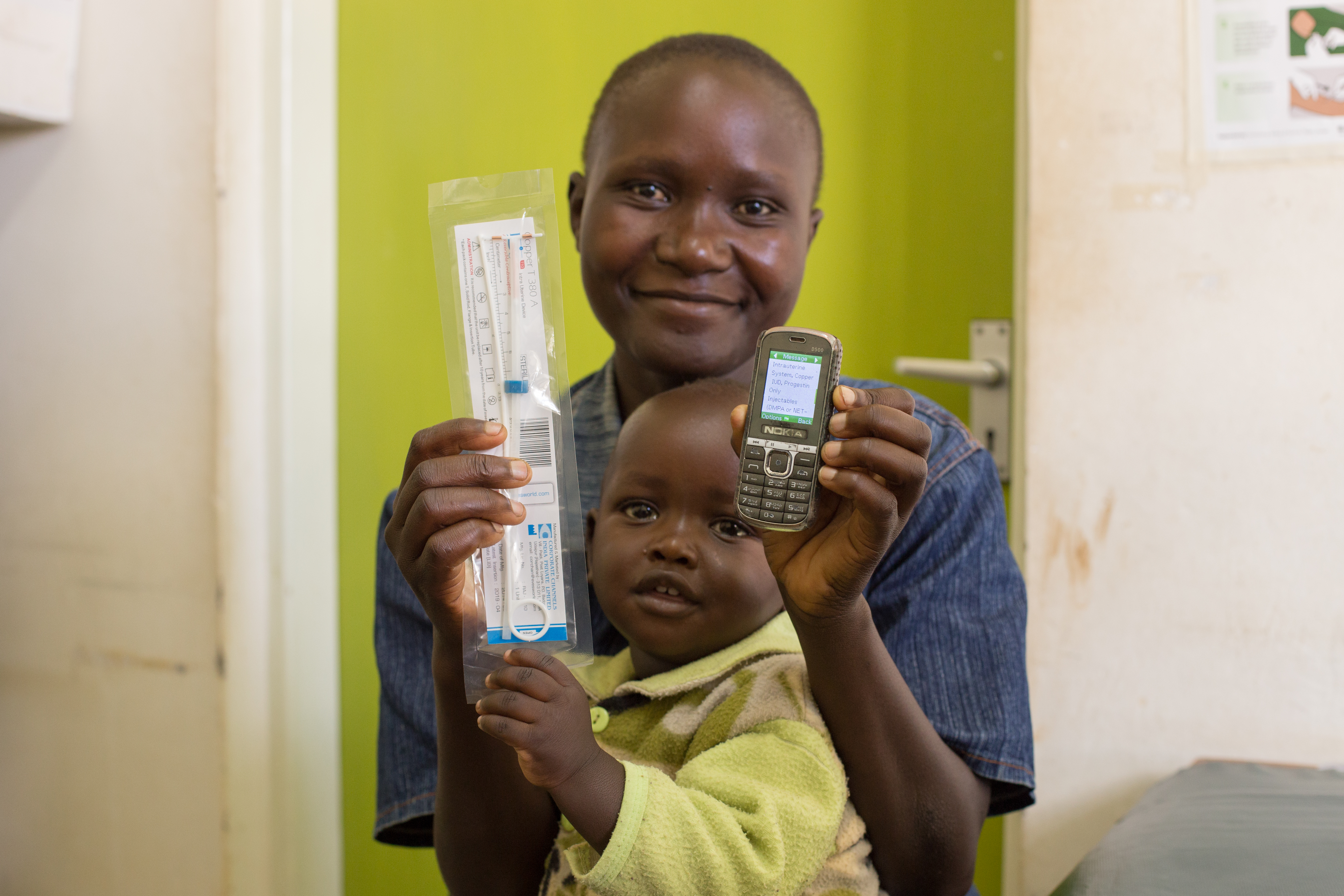
2015
Merck for Mothers explores digital technologies to mobilize maternal health
Merck for Mothers commits resources to invent or enhance existing solutions to tackle some of the most critical obstacles standing in the way of delivering quality maternity care and contraceptive services in low- and middle-income countries. This commitment leads to a new wave of smart, innovative apps and digital platforms – like the Safe Delivery App, mDoc, Project iDeliver, AskNivi, MomCare, Together for Her Health, among others.
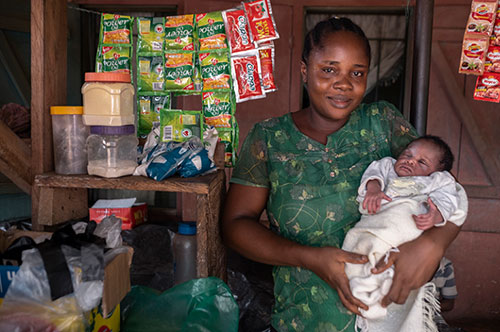
Merck and Merck for Mothers help advance a new set of UN global goals
The Sustainable Development Goals (SDGs) are formally adopted at the 70th UNGA. They represent the international community’s aspirations for improving the lives of the world’s poorest people by 2030.

Merck for Mothers has now reached 5 million women worldwide through its programs
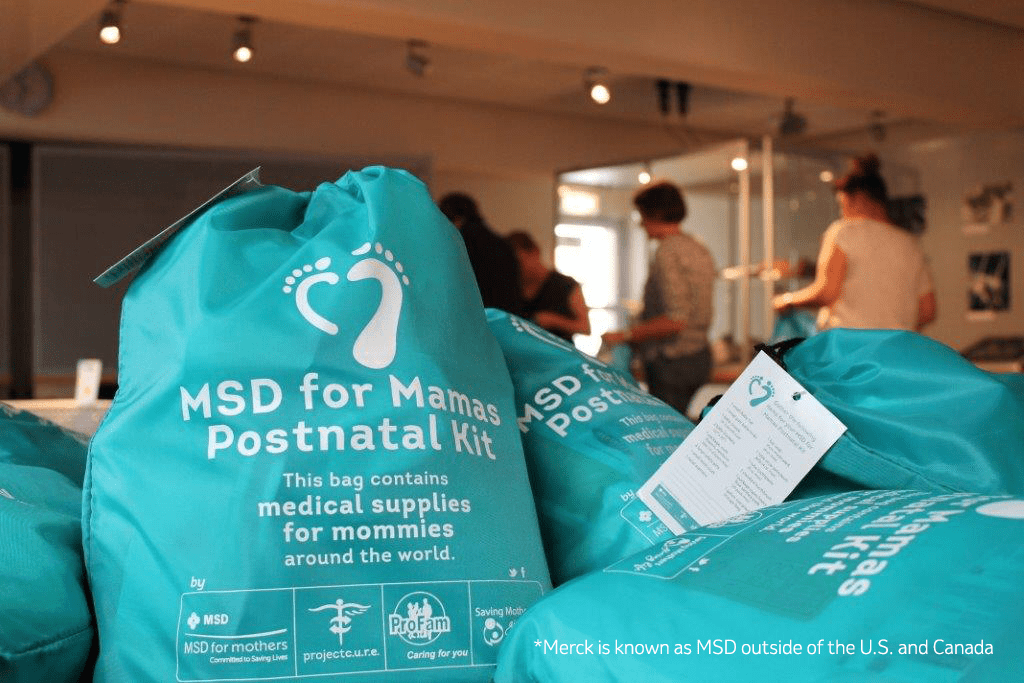
2016
Employees across the globe join the fight to end maternal mortality
Employee volunteers participate in activities such as assembling post-natal kits for soon-to-be mothers in Uganda as a means of encouraging them to seek care to support healthy pregnancies and deliveries. The kits include essential supplies to aid the health and safety of a mother and newborn after birth. This activity, among others, become annual events where employees can help amplify our impact.
Merck for Mothers’ collaborators complete their first maternity waiting home in Zambia
Maternity waiting homes — residences located near health facilities where pregnant women can stay before they go into labor — can make all the difference for pregnant women in rural Zambia, where the distance between home and a health facility can be a matter of life and death.

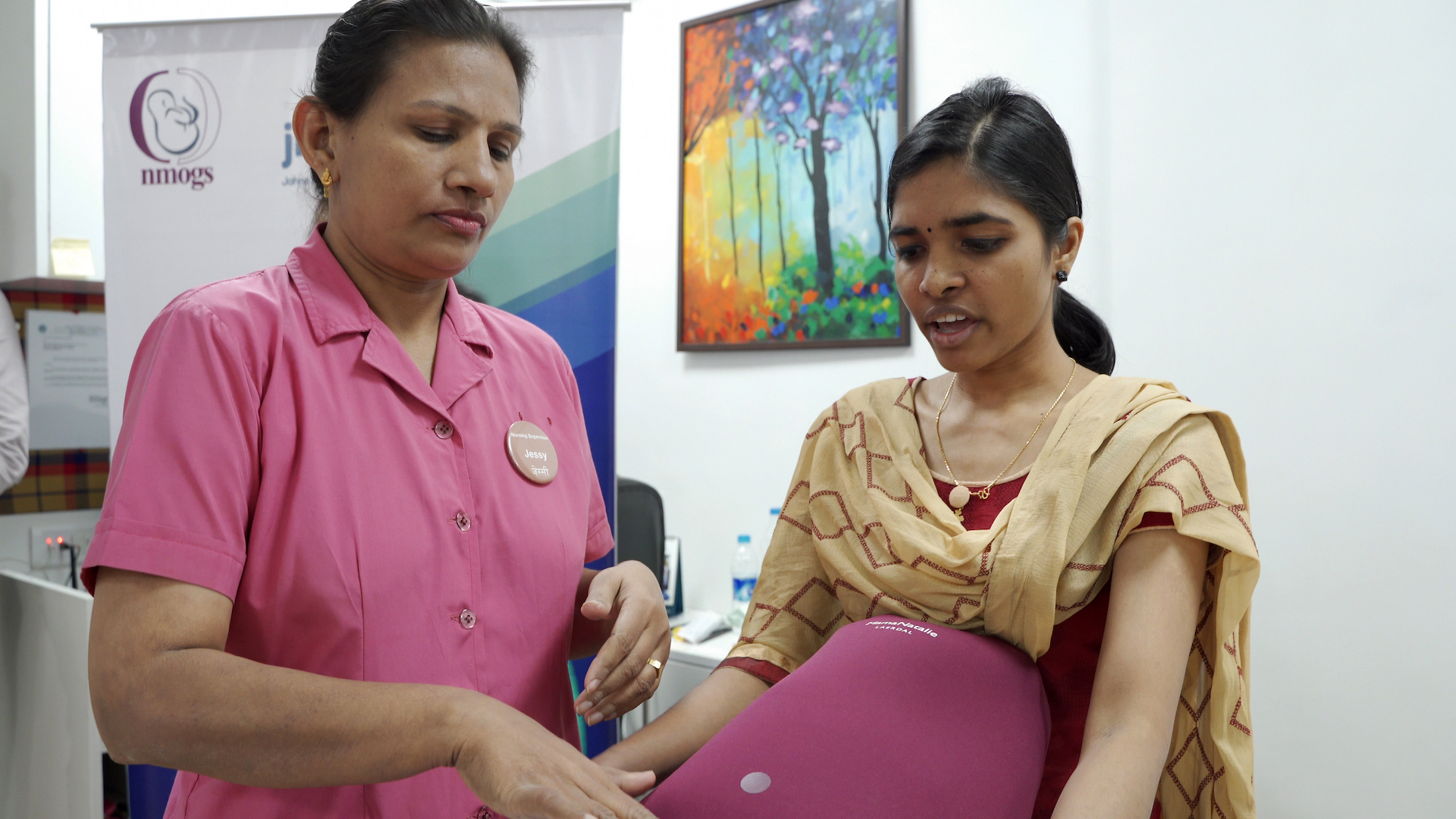
2017
Merck for Mothers teams up with stakeholders across India to launch Manyata
Merck for Mothers, Jhpiego India and the Federation of Obstetric and Gynecological Societies of India partnered to launch Manyata – an ambitious agenda to improve quality of maternity and newborn care services in private facilities by training doctors, nursing and administrative staff on essential clinical, facility and patient care protocols in India.
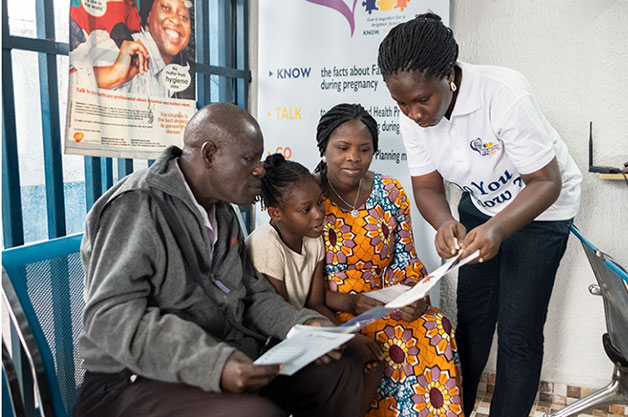
Merck for Mothers commits $10 million and business expertise to the Global Financing Facility
In support of the UN Secretary-General’s Every Woman Every Child strategy to improve maternal and child health in low- and lower-middle-income countries, the goal is to prevent an estimated 3.8 million maternal deaths, 101 million child deaths and 21 million stillbirths by 2030. Merck is the first private sector investor and helped bring other private sector investors to the table.
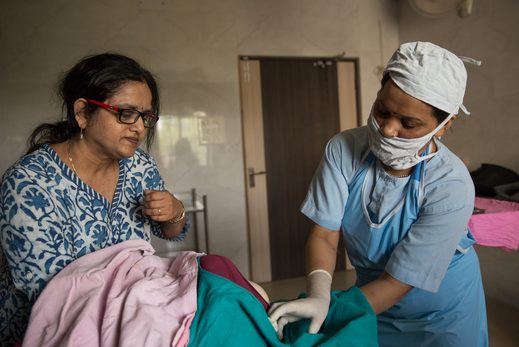
Merck for Mothers launches the world’s first maternal and newborn health development bond with public and private sector collaborators
The Utkrisht Development Impact Bond leverages private investor capital to incentivize private maternity providers in Rajasthan, India to improve the quality of care they deliver. Interventions will reach up to 600,000 pregnant women with improved care during delivery and could lead up to 10,000 lives being saved over a five-year period.
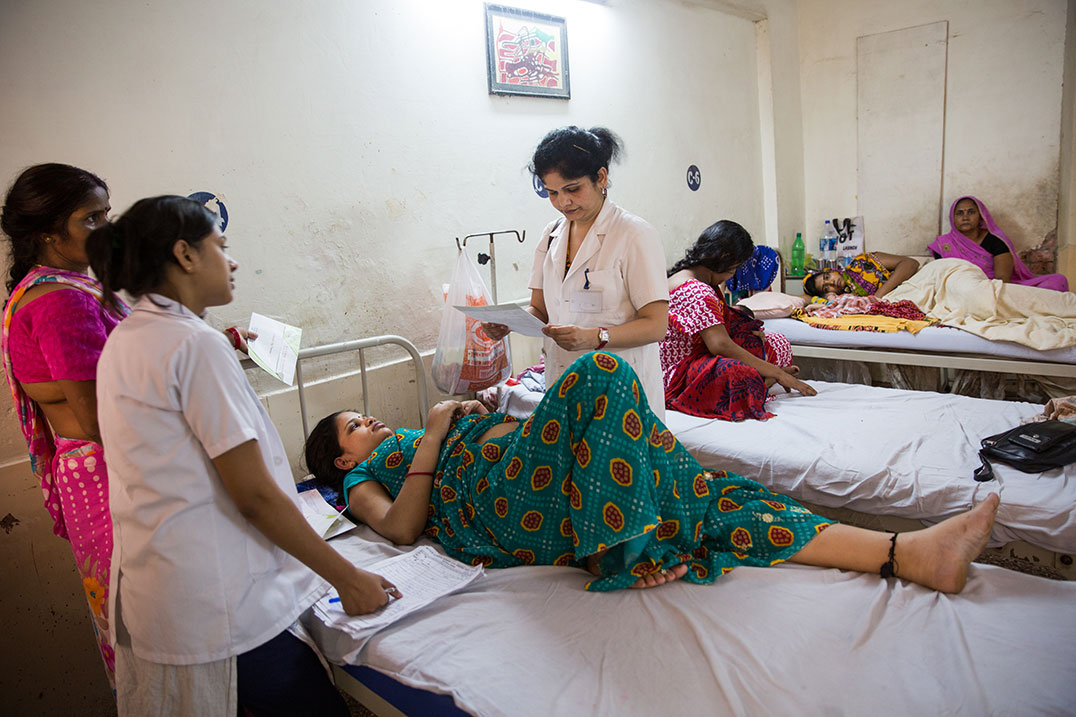
2018
Ferring Pharmaceuticals and Merck announce completion of carbetocin clinical trial, the largest clinical trial ever conducted in postpartum hemorrhage
The trial of heat-stable carbetocin showed it to be as safe and effective as oxytocin in preventing postpartum hemorrhage, the largest direct cause of maternal death. The trial included nearly 30,000 women from 10 countries.
“This has the potential to change the paradigm in how we save more mothers from dying during childbirth,” said Dr. Julie L. Gerberding, Merck’s then-chief patient officer.
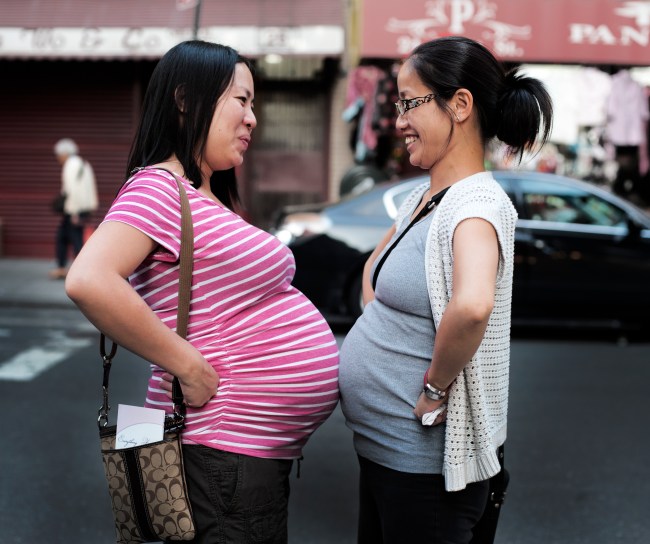
Merck announces new U.S. initiative — Safer Childbirth Cities
Through this initiative, Merck for Mothers will provide grants to help cities with poor maternal health outcomes develop and implement creative, multi-sector solutions to save women’s lives and improve maternal health.
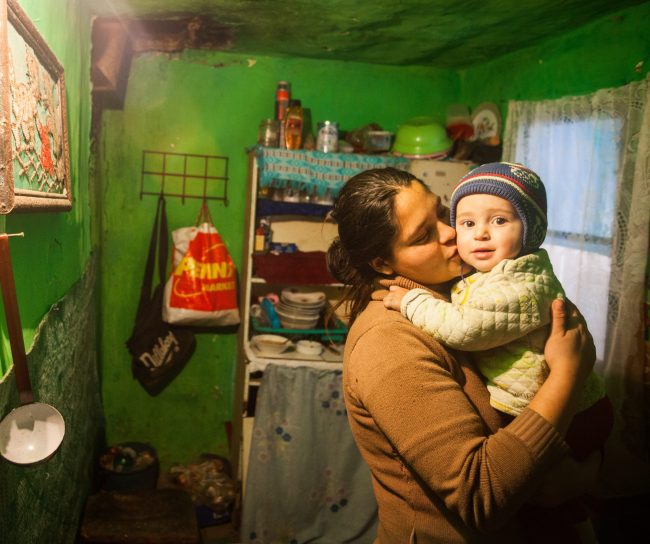
Merck for Mothers publishes first research compendium to advance collective understanding of maternal mortality
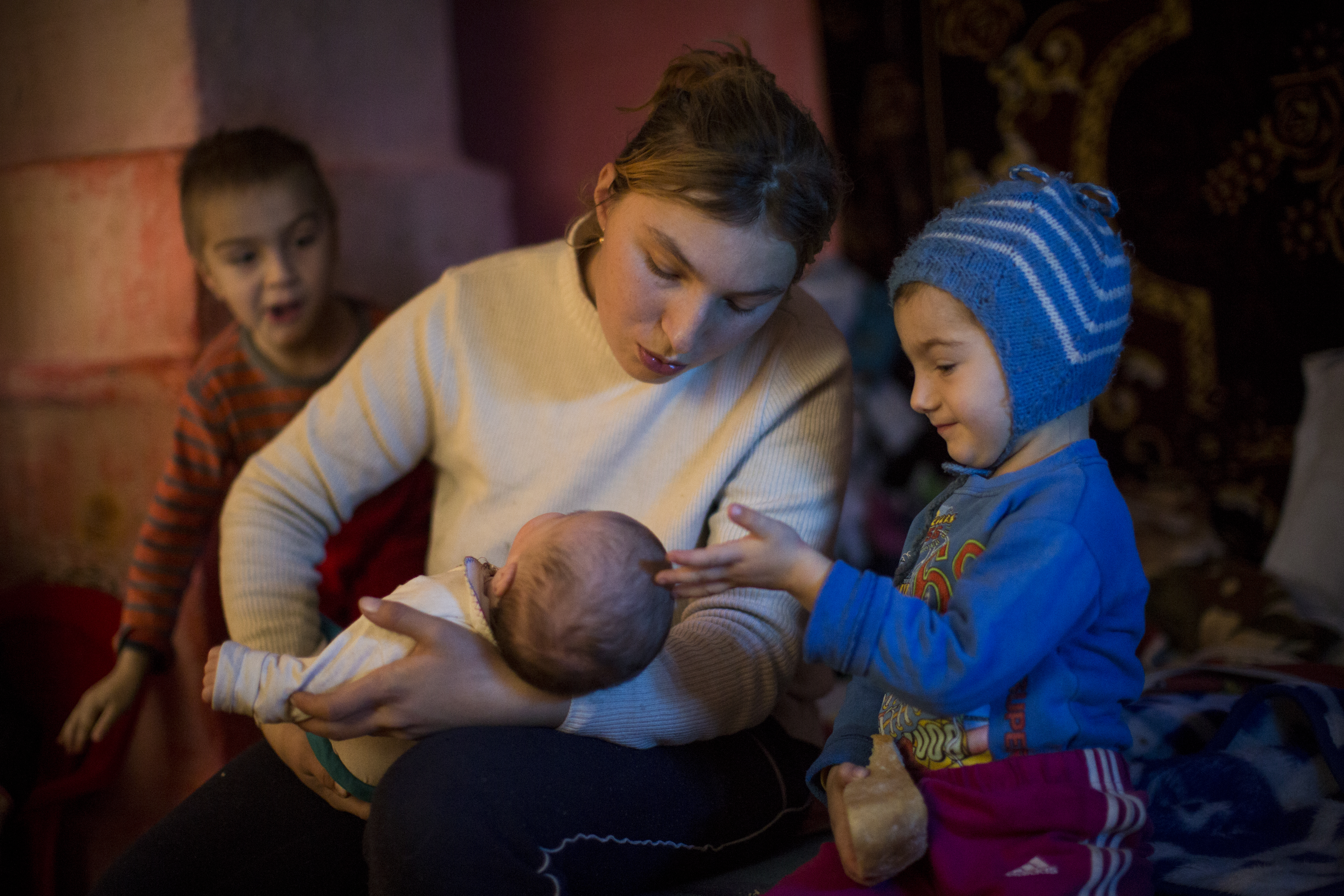
2019
Merck for Mothers has now reached 10 million women worldwide through its programs
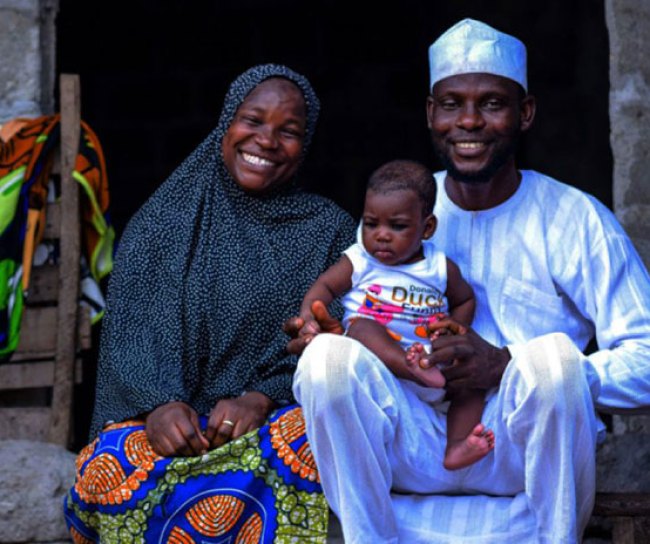
The MOMs (Maternal Outcomes Matters) Initiative launched
A partnership between Merck for Mothers, the U.S. International Development Finance Corporation, Credit Suisse and USAID to stimulate, advance and scale innovations that contribute to a healthy pregnancy and safe childbirth. It will invest $50M in local businesses that are working to improve maternal health in regions of the world where high rates of women are dying from pregnancy and childbirth. (Photo credit: LifeBank)
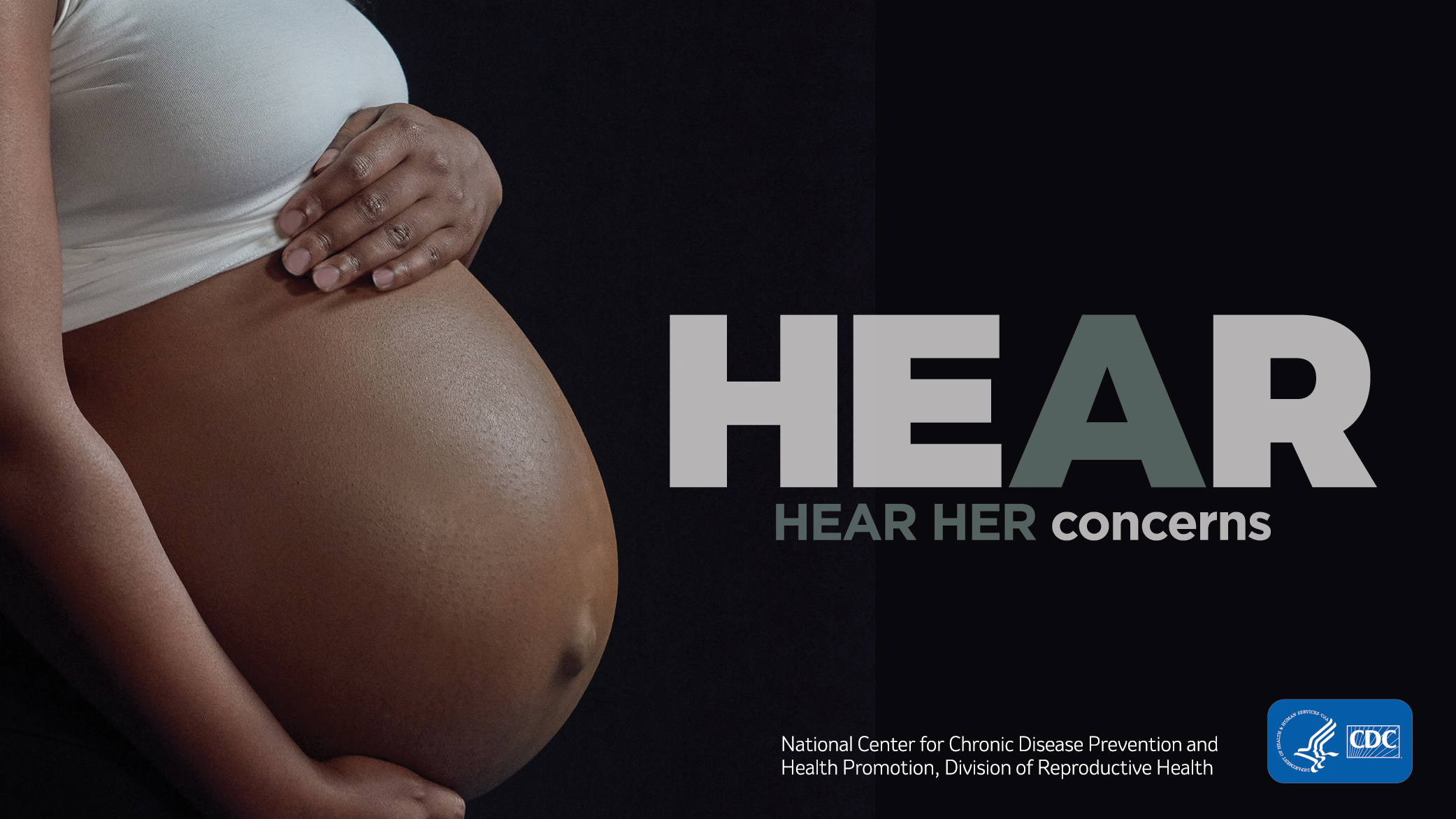
2020
Merck for Mothers provides funding to help support the CDC’s new maternal health communication campaign, Hear Her
Hear Her brings attention to maternal mortality and provides support to pregnant and postpartum women to speak up when something doesn’t feel right.
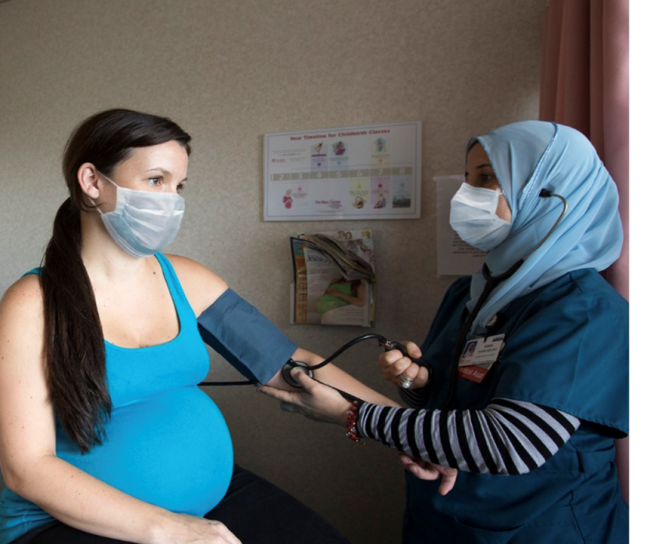
Merck commits $3M to address maternal health needs during COVID-19 pandemic
2021
Merck announces fifth round of global grants to tackle maternal mortality and access to health worldwide
Merck for Mothers supports the corporate grant program which enables Merck offices around the world to aid nongovernmental organizations that are improving maternal health. The program responds to local women’s needs, focusing on how resources can increase health equity in maternity care and support.
Merck announces additional $150M investment through 2025 to help end maternal mortality inequities, building on the $500M commitment made in 2011
This investment comes at a pivotal time for the global health community as the COVID-19 pandemic continues to stretch health systems, disrupting networks of care that support healthy pregnancies and safe childbirth.
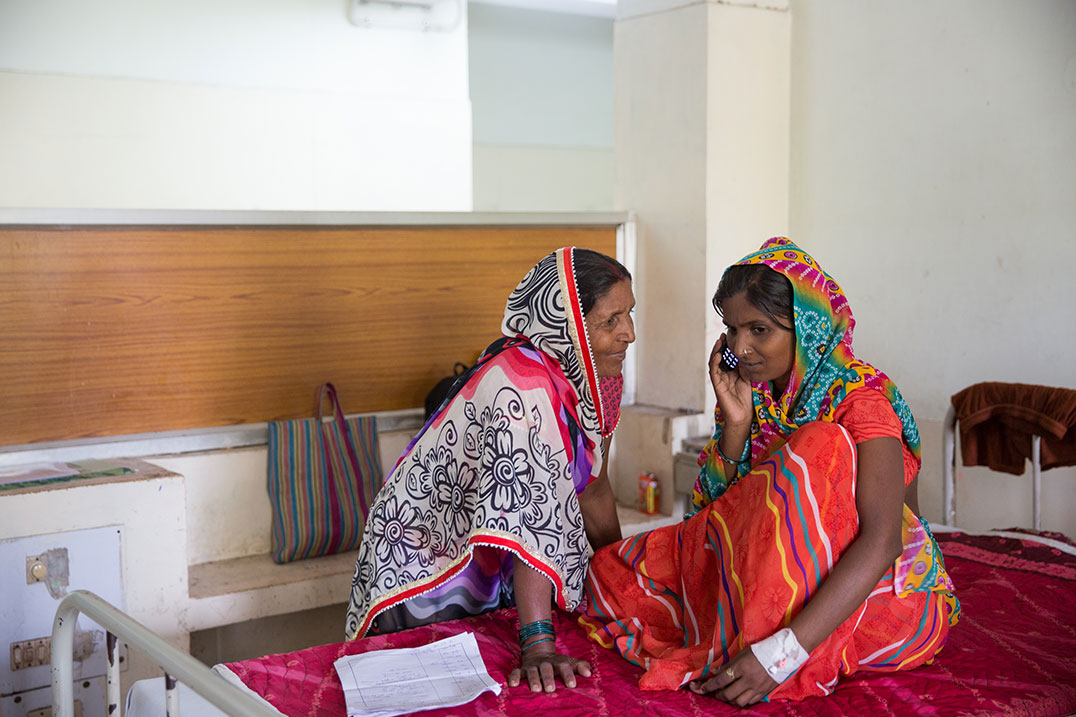
2022
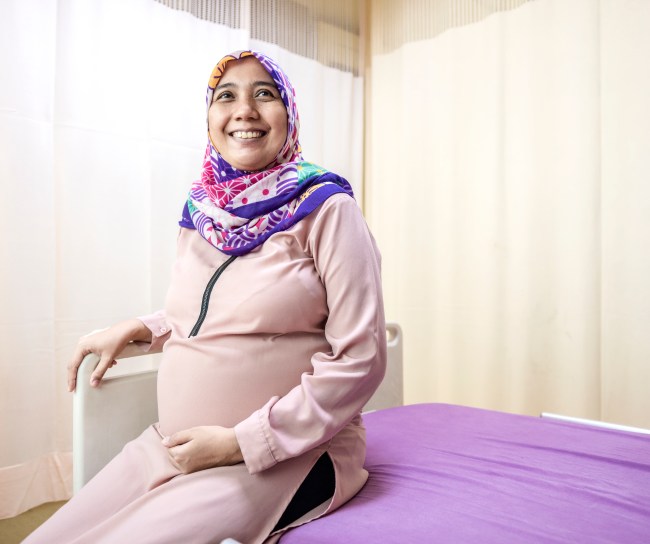
Merck for Mothers launches Strengthening Systems for Safer Childbirth Coalitions
This global initiative is supporting locally driven solutions with coalitions across India, Kenya, Nigeria and Sierra Leone. The coalitions lead activities to improve access to high-quality maternal health care.
2023
Merck for Mothers debuts new report examining how transformational impact can be made in maternal health
The report highlights six social investments whose solutions have demonstrated transformational impact on maternal health in different contexts — each with funding from Merck for Mothers. Learn more about the report.
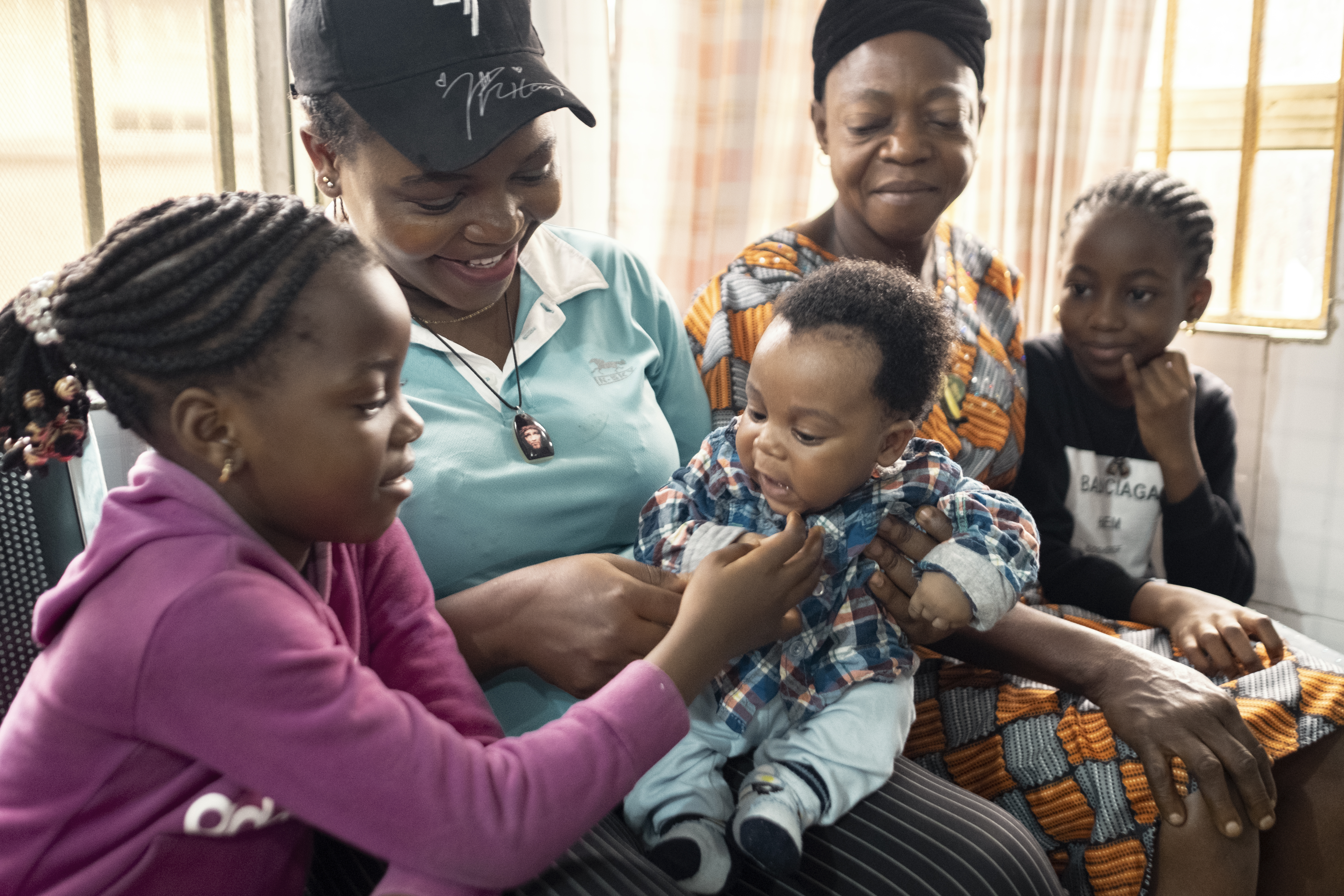

Merck for Mothers supports organizations in Latin America
With a sixth round of global grants, Merck for Mothers supports organizations in Latin America, where wide disparities in maternal health outcomes persist. Through the grants, we aim to reach 135,000 women throughout Brazil, Colombia, Dominican Republic, Ecuador and Mexico.
2024
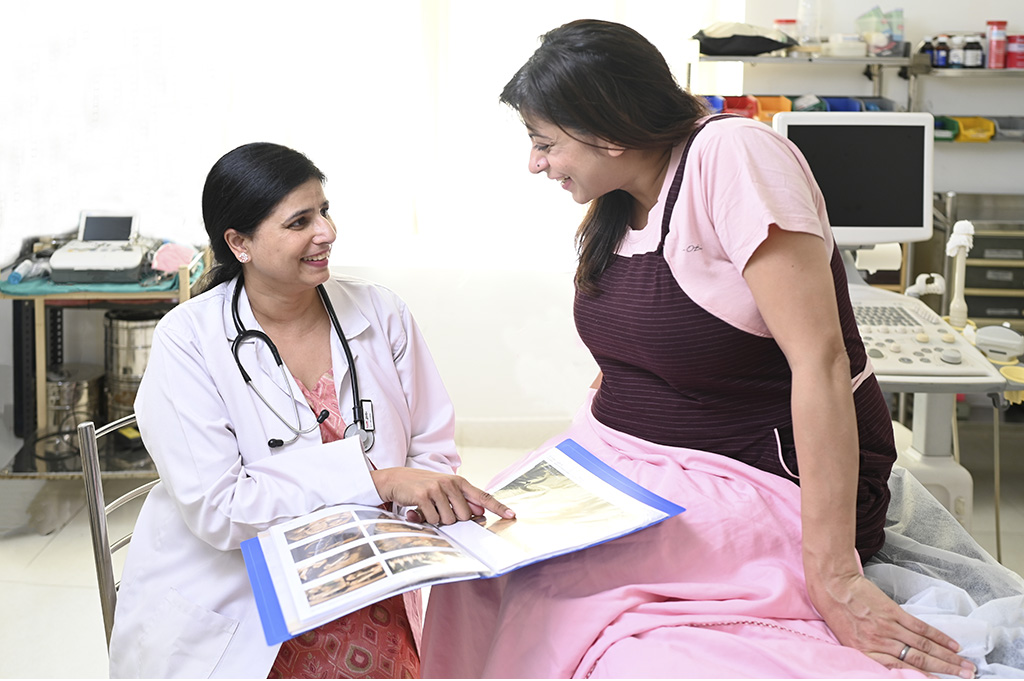
Merck for Mothers has reached more than 30 million women around the world
Through programs promoting safe, high-quality, respectful care, Merck for Mothers has now reached more than 30 million women, surpassing its goal of reaching 25 million women by 2025. Learn more
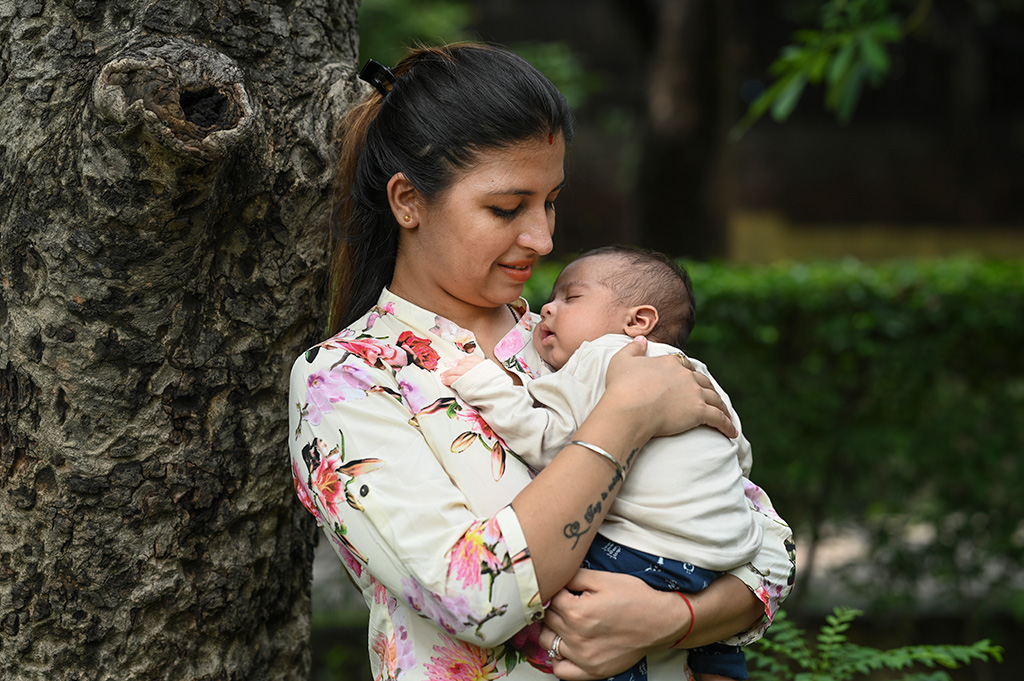
New grants help women in southeastern Europe
Latest round of global grants supports UNICEF through innovative projects designed to meet the unique local needs of women in Bulgaria and Serbia. Learn more
We believe solutions to end maternal mortality and improve the quality of maternity care should be rooted in women’s voices and experiences



